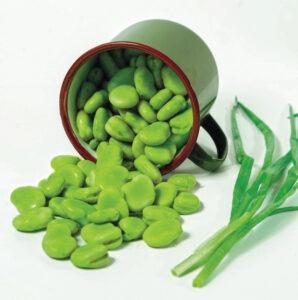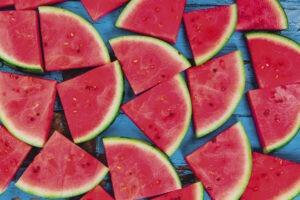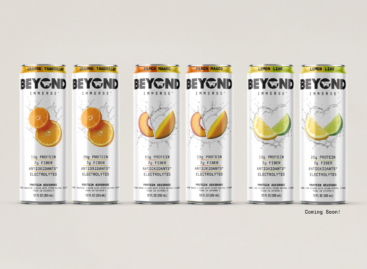Plants reimagined
The role of plants in food is transforming: they are no longer just ingredients, but central elements of products, according to a study summarising industry trends by Innova Market Insights.
This article is available for reading in Trade magazin 2025/8-9.
While in recent years plant-based innovation has concentrated on mass products, wide distribution, better quality, an expanding range of ingredients and cost efficiency, this year the focus shifted to naturalness and authenticity. Shoppers are now looking for naturalness in plant-based products. So much so that after health this is the second most important factor for them. A growing proportion of plant-based products are now marketed as being free from additives and preservatives.
Halfway between substitute and standalone product
The future of plant-based products is increasingly shifting towards standalone value propositions. Although a considerable proportion of consumers still accept these products as substitutes for meat or dairy products, there are even more who believe that plant-based foods should be marketed not as substitutes but as a separate category. Numerous plant-based products currently appearing on store shelves are deliberately designed not to imitate meat. These include classics such as tofu and tempeh, as well as innovative solutions like Veg’chop: a plant-based meal made from legumes, seeds and vegetables such as lentils, sweet potatoes, and quinoa.

Consumers’ attention is shifting from alternatives to “stand-alone” plant-based foods
Diversity in plant proteins
The range of plant-based protein sources is constantly changing and expanding. Pea protein has now taken the lead in food and beverage products labelled as plant-based or vegan, while soy protein remains the second most commonly used, followed by wheat protein. However, new alternative protein sources such as pea, flaxseed, lentil and sunflower protein are emerging in the food industry and could form the basis of the next generation of plant proteins.

Fava beans make a great ingredient in both meat substitutes and protein-rich plant-based foods
Horse bean protein is versatile and can be used in a variety of meat substitutes and protein-rich plant products.
Lentil protein is used in milk substitutes, while sunflower protein is frequent in egg and meat substitutes. Alongside the growing use of plant proteins, more and more new products made from whole plant ingredients are appearing on the market.

MILKish is made from watermelon seeds, which are widely abundant and rich in protein
Plant-based, but not entirely
Peter McGuinnes, the CEO of Impossible Foods recently announced that his company is ready to switch to hybrid burgers in response to waning interest in meat alternatives, targeting the flexitarian community. Combining meat and plant-based ingredients isn’t a new invention, but it hasn’t been a clear success with consumers so far.
Hybrids are now experiencing a renaissance. Dutch retailer Albert Heijn has recently introduced 15 new products combining meat with plant-based ingredients, in collaboration with PlanetDairy – at the same price as traditional products. These products perform better in terms of the taste and texture and contain fewer ingredients considered problematic from a health perspective, such as saturated fat. Plus their production involves lower carbon emissions, making them more sustainable.

In co-operation with PlanetDairy, Dutch retailer Albert Heijn has introduced a new 30% plant-based hybrid milk to its range
Beyond Meat becomes Beyond: plant-based company changes direction
Beyond Meat has dropped the word Meat from its name and will continue to operate as Beyond in the future.

Beyond would compete with the entire grocery store offering and transform the image of plant-based proteins
The name change also signals a strategic shift: the company’s focus will move away from imitating animal-based meats to plant-based proteins with intrinsic value, which they intend to position as functional foods in the future. The rebranding is probably also motivated by Beyond’s financial difficulties: it reported a 9% revenue decline in the first quarter of 2025.
Related news
Less meat might be consumed in German-speaking countries
🎧 Hallgasd a cikket: Lejátszás Szünet Folytatás Leállítás Nyelv: Auto…
Read more >Landmark Vote Positions Helsinki as a Plant-Based Policy Frontrunner
🎧 Hallgasd a cikket: Lejátszás Szünet Folytatás Leállítás Nyelv: Auto…
Read more >Beyond Meat expands protein drinks after promising test launch
🎧 Hallgasd a cikket: Lejátszás Szünet Folytatás Leállítás Nyelv: Auto…
Read more >Related news
Innovations, success stories and awards on the same stage
🎧 Hallgasd a cikket: Lejátszás Szünet Folytatás Leállítás Nyelv: Auto…
Read more >Farewell day at the 60th anniversary EuroShop trade fair
🎧 Hallgasd a cikket: Lejátszás Szünet Folytatás Leállítás Nyelv: Auto…
Read more >NAV: Women’s Day inspections begin
🎧 Hallgasd a cikket: Lejátszás Szünet Folytatás Leállítás Nyelv: Auto…
Read more >







